Getting Approved for Your Mortgage: How to Keep It Fast and Simple
Whether you’re a first time home buyer or a seasoned veteran, the application and approval process can be intimidating if you aren’t prepared. A little bit of preparation can go a long way by reducing stress and moving the mortgage approval process along faster.
Remember, every application is different. Different lenders, the current real estate climate, your credit history, and other factors all influence the mortgage approval process. How they affect your mortgage approval is impossible to accurately predict until you have submitted an application for approval.
The steps we have laid out below are a guideline, and your individual situation may differ from those listed. To make sure you are prepared to make your application we recommend consulting with a mortgage professional, who will be able to provide you will a complete list of things you can do to help make your application process as smooth and streamlined as possible.
Before You Apply for a Mortgage
Before you apply for a mortgage you should make sure you are prepared. There are a number of steps you can take to help ensure the process goes as smoothly as possible and avoid delays.
Know Your Credit Score and Credit Bureau
The higher your credit score, the better the odds of a fast approval. If your credit score seems abnormally low, you should check for irregularities or errors on your credit report.
If you find some, you should take steps to resolve any issues prior to submitting a mortgage application. The higher your credit score, the less risk you represent to a lender. Spending a few weeks resolving any credit issues that you find will go a long way in speeding up the approval process. Generally speaking, a Beacon score above 680 will help make your application process smoother.
Organize Your Documentation
Have your important documents ready to go. You can expect a lender to ask for:
- A letter of employment. This is used to verify your position, salary, and start date. It will also state whether or not you are on probation.
- Your most recent pay stubs. You will likely only need to provide your two most recent pay stubs.
- Personal tax returns and notice of assessments for the previous two years. Most applicants will not be asked to provide a notice of assessment. However, applicants who are self-employed or receive a significant amount of income from non-employment sources will need to provide a notice of assessment in order to verify their income and its sources.
- Down payment history. 90 days history on the source of your down payment
Mortgage Application Tips
These mortgage application tips will help ensure your application process is as simple and hassle-free as possible.
- Avoid making large purchases during the application process. Large purchases can affect your application, so try and hold off on making any large purchases during your application process. If you are unable to wait to make the purchase make sure you let your mortgage broker know so the lender isn’t surprised by the sudden change in your financial situation.
- Respond to all communication as quickly as possible. Delays in communication can create additional stress on all sides, especially as the closing deadline approaches. By responding to all communications as soon as possible you can help move the application process along.
- Provide all requested documentation as quickly as you are able. Your mortgage broker will walk you through the documentation required either during or shortly after, the application is made. By providing these documents as soon as possible you can help ensure there are no delays during the approval process.
- Try to avoid moving your down payment money around. Your lenders will want to see a history of where the money came from (in order to combat potential fraud and money laundering). To keep things simple, try to leave the funds for your down payment in one account throughout the application process.
- Avoid taking on new credit while waiting for mortgage approval. Your mortgage approval takes your credit history and current credit accessibility into consideration. If you apply for new credit cards it may affect your mortgage application. If you are able to do so, try and wait until after your mortgage has been finalized before you apply for any additional credit. This also shows the lender that you aren’t planning on using a credit card, or another high risk source of credit, to help fund your down payment.
Applying for a mortgage can be stressful, but you can minimize stress by being prepared. A mortgage broker can also help you navigate the application process, and help you determine which documents you need to provide to your lender.




